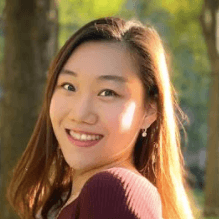SUMMARY
This is AI generated summarization, which may have errors. For context, always refer to the full article.
![[OPINION] Taking advantage of the ‘Twitter University major’ during the pandemic](https://www.rappler.com/tachyon/r3-assets/612F469A6EA84F6BAE882D2B94A4B421/img/F2134ECB43E444F1A8BF5F7A1B355344/taking-adv-twitter-university-may-19-2020.jpg)

As the COVID-19 pandemic continues to unfold, it has recorded over 4.6 million cases worldwide. It is the first pandemic in the social media era, with about 3 billion social media users worldwide. With this, a new word has surfaced: the “infodemic,” which is defined by the WHO as “an overabundance of information – some accurate and some not.” This infodemic is a serious matter, and calls for global action to combat misinformation. However, the infodemic is not all about misinformation; it also has a silver lining.
In an article written by the former director of media relations at the CDC, Dr Glen Nowak highlights how social media interconnects various channels, playing a key role in the amplification and dissemination of health information during an emerging infectious disease outbreak (in this paper, the Zika virus).
The professors of Twitter University
Twitter, specifically, has become a new platform for “open science,” where scientists, PhD students, and professors from various fields share findings faster than on any other media. They can share new updates on the virus, and commend or voice out their concerns on articles. (READ: Twitter offers data to researchers studying virus)
For better educational discourse, Twitter even started verifying users who can provide valuable insights into this pandemic – experts from various fields ranging from mathematical modeling to genomics. There’s Marc Lipsitch, a Harvard infectious disease epidemiologist; Trevor Bedford, the virology expert from the Fred Hutchinson Center; and Gregg Gonsalves, human rights expert and epidemiologist from the Yale School of Public Health; among others.
The stakeholders of Twitter University
Twitter encompasses a wide range of users: from grassroots users, public health agencies, news media, and even the surgeon general of the US, who has more than 760,000 followers. It has been a platform widely used by official public health agencies such as the Centers for Disease Control and Prevention (@CDCgov) and the World Health Organization (@WHO) to disseminate accurate information to the public promptly. This then gets amplified through people’s retweets, favorites, and quotes, reaching millions of users around the globe. This type of information dissemination can specifically be efficient among the younger generation, who comprise a big proportion of Twitter users.
What students are saying at Twitter University
All these voices and uses in the Twitter realm can then be used to further learning in fields such as health communication, digital epidemiology, and social sciences. Tweets during the pandemic can reveal tons of information, including the concerns of the public, whether messages sent out by agencies are delivered correctly, how agencies can adapt to reach the public better, and the dominant sentiments of the public on new implementations. It has also been a platform for advocating social distancing, with hashtags such as #FlattenTheCurve, #StayHomeSaveLives, #QuarantineLife, and #StayHomeStaySafe. (READ: Twitter removes 2 Bolsonaro tweets questioning virus quarantine)
If there’s a silver lining in this pandemic, it’s that there are various ways to take advantage of social media as a tool. It is a platform that connects people all around the globe, where everyone has a voice; it is a sphere where they can learn and have the power to share. If we can leverage this Twitter University right, it can be a great platform to learn from amazing professors, scientists, and experts for free; receive accurate information in an instant, and voice our concerns.
The infodemic may not be all about misinformation. It can be turned into something invaluable in this pandemic, helping us to convey the right message from the right people at the right time. – Rappler.com
Jiye Kwon (jiye.kwon@yale.edu) is a Master of Public Health student at the Yale School of Public Health, Department of Epidemiology and Microbial Diseases.
Add a comment
How does this make you feel?
There are no comments yet. Add your comment to start the conversation.